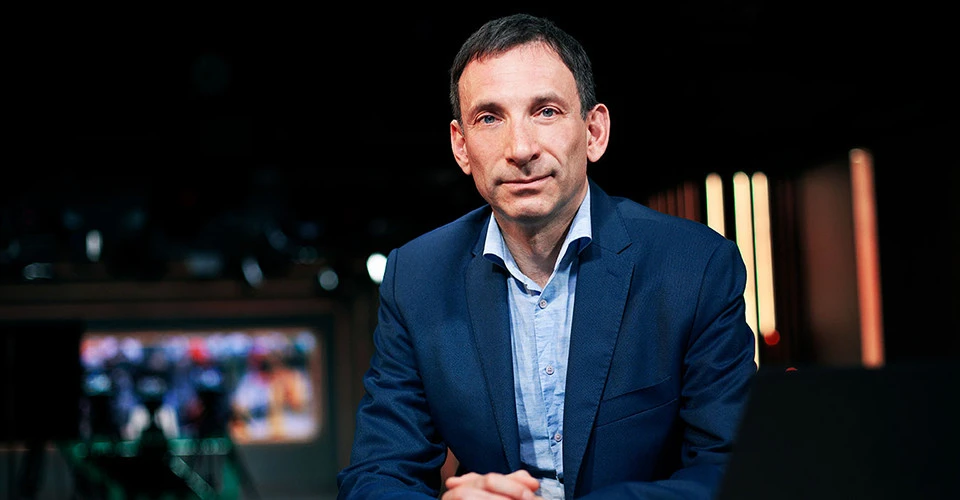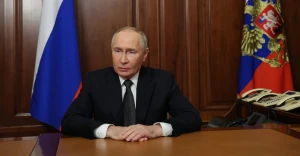
What US demands to Ukraine will be delivered to Zelenskyy in Davos. Vitaliy Portnykov's column
According to a Bloomberg columnist, US National Security Advisor Jake Sullivan is to deliver a message from US President Joe Biden to President Volodymyr Zelenskyy on the sidelines of the World Economic Forum in Davos, saying Ukraine should move from offensive to defensive actions
By and large, this message from the White House is not so much a wish as a statement of the facts. Today, we can talk about a certain static nature of the front line, and this front line acquired its current appearance in the fall of 2022. The hopes that the Ukrainian army would be able to liberate a significant part of the occupied territory of the country during its offensive against the positions of the Russian armed forces did not materialize, but the Russian armed forces have not yet managed to capture new Ukrainian regions, as Russian President Vladimir Putin dreams of.
The Ukrainian side has repeatedly spoken about the importance of this strategic defense, and Ukrainian generals have also spoken about it when characterizing the situation at the front. Ukraine's strategic defense, of course, does not exclude the possibility of strikes on enemy positions, but it also involves the defense of those territories under the control of the legitimate Ukrainian government.
Strategic defense is also a consequence of this tactic chosen by the West in the new stage of the Russian-Ukrainian confrontation. A Bloomberg columnist talks about the West's betrayal, but he is primarily referring to those political forces that actually prevent further assistance to Ukraine, its improvement and intensification. We can talk about the position taken by the supporters of former US President Donald Trump in the US Congress. As a result of this position, it is still difficult to make any objective predictions about when the much-needed American assistance to Ukraine will appear.
We can recall the position of Hungarian Prime Minister Viktor Orban, who has repeatedly blocked both aid to Ukraine and the strengthening of sanctions against Russia, with whose leadership the Hungarian leader has a special relationship. Whatever we may say about the positions of individual political groups and leaders on the Western political scene, they all seem to be framed by the objective problems that exist in the civilized world with helping Ukraine.
Add to this the growing conflicts - the war in the Middle East since October last year has become a central event for the United States, the European Union, and the countries of the so-called Global South.
And the Russian-Ukrainian war, amid unresolved problems in the Middle East and the possibility of the conflict escalating into a much more serious global conflict, has faded into the background not only in the pages of the world's leading media, but also in the minds of Western politicians.
The Bloomberg columnist says that Ukrainian President Volodymyr Zelenskyy should take advantage of the current situation in terms of the West's ability to continue to help Ukraine in its fight against Russia. He should take advantage of the message he will receive from Assistant to the US President for National Security Affairs Jake Sullivan and demand more weapons specifically to defend Ukrainian positions against a possible Russian offensive.
We have to realize that Russia, unlike Ukraine, is not just concerned with the defense of the territories that were seized during the 2014-2022 war. No, Russian President Vladimir Putin is planning to further destabilize Ukrainian state.
The Russian leader has not for a minute abandoned the idea that guided him when he decided in 2014 to annex Crimea and start an undeclared war in the Ukrainian east - this is only the first step towards the restoration of the so-called Soviet empire, towards the Russian Federation's return to the borders of the Soviet Union in 1991.
We must realize that the war with Ukraine for the Russian leader is only an episode in the implementation of much larger and more serious plans to correct what the Federal Security Service of the Russian Federation, which is the governing center in Russia (one might say, since the late 90s of the last century), calls the 1991 mistake.
A mistake that must be corrected by the Chekist leaders, either by Vladimir Putin or whoever will become the next Russian president after him at any cost. How many Russians will die in the struggle to reach the 1991 borders, and what will happen to the Russian economy, is of no concern to the Chekists. They are confident that any price can be paid for returning to these borders and for the opportunity to talk to the West about the fate of the world on an equal footing, as they see it, again.
This is when it comes to the lives of Russian citizens. And, of course, when it comes to the lives of citizens of other former Soviet republics, which are not perceived by the Russian political leadership as real states at all, but rather as non-states that sooner or later must be integrated into this newly restored Russian empire.
Therefore, Ukrainian defense and the protection of our territories from Russian occupation is also an important factor in ensuring that Russia will not be able to further develop the initiative in the entire post-Soviet space. That it will not threaten the West with new attempts at hybrid attacks on NATO member states, including, by the way, former Soviet republics and former Warsaw Pact countries, where Russia also has a full claim to influence. So Ukraine has every reason to demand weapons from the West to defend its territories, unless it is an offensive or attack.
But a simple question arises: does the West assess the situation the way the Bloomberg columnist would like it to?
About the author. Vitaliy Portniyov, journalist, winner of the Shevchenko National Prize of Ukraine
The editors do not always share the opinions expressed by the blog authors.
- News













































